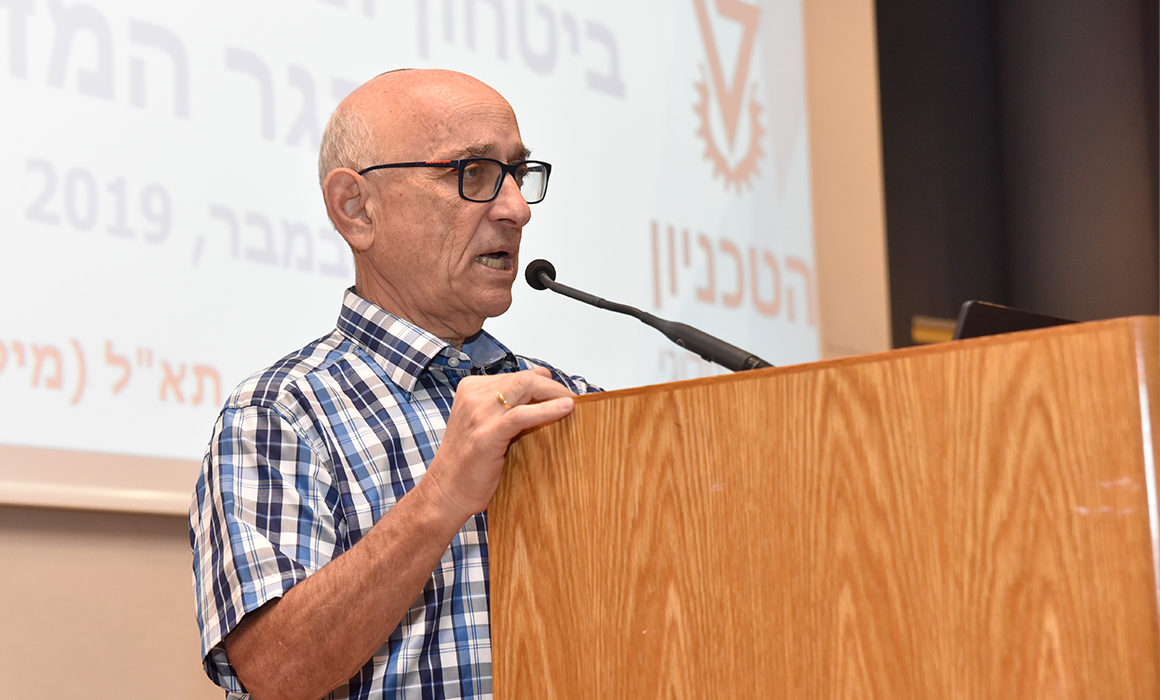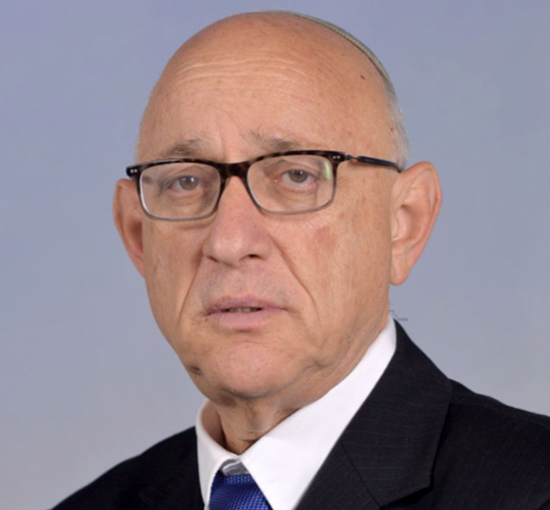Technion Professor and Security Insider Brigadier General (Res.) Jacob Nagel Assesses the Historic Abraham Accords
In September 2020, Israel, the U.S., the United Arab Emirates (UAE), and Bahrain signed the Abraham Accords, normalizing relations between Israel and the two Arab nations. Morocco and Sudan soon followed suit. ATS writer Jennifer Frey discussed the implications of the Accords with Visiting Professor Brigadier General (Res.) Jacob Nagel, who served as Head of Israel’s National Security Council and Prime Minister Benjamin Netanyahu’s Acting National Security Advisor just prior to joining the Technion in May 2017. He now heads the Technion’s Advanced Defense Research Institute, home to the Center for Security Science and Technology (CSST) and the Peter Munk Research Institute.
Jennifer Frey: How did this historic agreement come about?
Brig. Gen. (Res.) Jacob Nagel: You cannot sign a peace agreement like this after just five minutes of work. You have to build it on long-lasting relationships and mutual respect. Making such an agreement always hinges on a win-win situation, and in this case, it was a win-win-win with the U.S. becoming a major ingredient in this complex achievement. So why now? The moderate Sunni countries came to understand we have a common enemy in Iran. That, together with the technological and economic benefits Israel brings to the table as a very important high-tech nation in civilian and defense technologies, made the timing right.
What impact will the agreement have on Israel’s economy, tech exports, and higher education?
This is a huge, huge opportunity to work with our new neighbors. It will be good for the spirit and atmosphere in our chaotic region, as well as the economy of all participants. They are looking to Israel and want our cooperation in sharing and developing technology, AI, agriculture, cybersecurity — almost everything. Israel is among the leading entrepreneurial countries, the “Start-up Nation,” and the Technion plays a huge part in powering the high-tech sector. The Emiratis can learn from our long experience, and there are things we can learn from them. It’s important to note that the UAE already has good technologies on their own.
Regarding higher education: Maybe the Technion will see some joint research, but I don’t anticipate many students coming from the Arab countries in the beginning, because of the language barrier. But this could change in the future. I can anticipate Hebrew language institutes opening in the UAE to teach Hebrew to those in business and academia, and the same with Arabic language schools in Israel. Of course, everyone is welcome; they would enhance the academic and technological collaboration.
Can you elaborate on collaboration in cybersecurity, and traditional defense?
Collaboration in cybersecurity is certainly possible, especially for protection. But there are things you can share with your good friends, and there are areas that have to be kept to yourself. They want to share, and I think it will happen. The same is true for traditional defense technologies. I think there will be security cooperation between Israel and the Gulf countries against regional threats in areas allowed by the authorities on both sides. Some areas are non-classified, and some are a little bit more classified. But we have a common threat in facing the possibility of a nuclear Iran, so I hope we will be able to work together to prevent it.
In light of the Israeli-Gaza conflict in May, what’s next for the Abraham Accords and peace in the region?
I hope the conflict in Gaza will not dramatically change the relations with the moderate Sunnis, for sure those who signed an agreement already. They entered the process because of their interests, which didn’t change significantly because of the confrontation in Gaza. It is going to be slower, for sure, and rebuilding Gaza under Israel’s terms will be another source for tensions, but also for cooperation. The crown jewel for the next agreement should be the Saudis, but this is going to be very difficult because of internal politics, and the change in the U.S., towards Iran. If the Saudis will come, they will really make an impact, because they can send a clear message to the region that things are changing.
On a completely different note, can you highlight some of the most exciting research in the CSST?
We’re working on technologies to counter some underground threats in the southern and northern parts of Israel. We now have new solutions on the borders but threats from tunnels will continue, so we are planning on new innovations in this area. Secondly, we’re working on new image-processing technologies and electronic systems to improve our visual intelligence of hovering drones, unmanned aerial vehicles, planes, and our satellites. We’re enhancing and miniaturizing our navigation systems. And lastly, we’re continuing our research in developing quieter surveillance drones, while also working on technology to counter hostile drones in our urban and civilian areas, together with solutions for our borders.
One last question: As Israel is a part of the global space race, could you comment on the significance of the Technion’s work in space exploration?
Israel is a world leader in space technology, both in LEO (low-Earth-orbit) launch capability and in minisatellite systems. Israel is using its assets in military and civilian areas, and as the only institute in Israel with an aerospace faculty, the Technion plays an important role in educating the scientists and engineers to build those technologies. The Technion just recently returned to space by launching a constellation of three nanosatellites. There is no doubt that space will be important in our future and the Technion will always be part of this goal.

